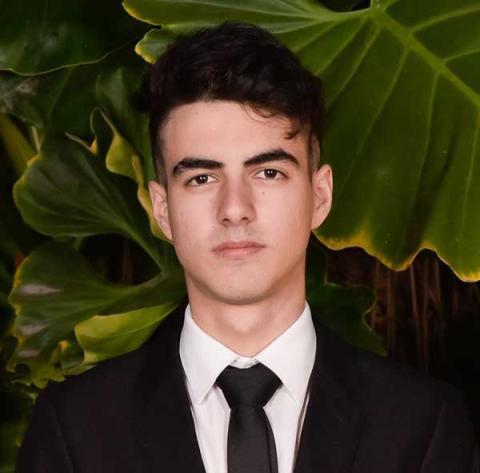Towards inclusive leadership development: A spotlight Interview with Angela Muruli
Angela Muruli is the Regional Programme Coordinator for Ending Violence Against Women and Girls at UN Women’s Regional Office for West and Central Africa, where she also serves as the Acting Regional Advisor for the same programme. Her journey into the UN system began in 2019 as a UN Volunteer with UN Women in Nigeria, but her passion for women’s rights and well-being started much earlier.
Originally pursuing a career in medicine, Angela studied biomedical sciences and aspired to specialize in obstetrics and gynaecology. Along the way, she became involved in diaspora led leadership programmes, further expanding her interest in addressing harmful practices such as female genital mutilation/cutting (FGM/C). It was during this time that she discovered a Master’s programme in Global Health and Development at UCL, a turning point that introduced her to the world of international development.
In this spotlight interview, Angela shares her experience in the UN Emerging Leaders e-Learning Programme (UNEL- e).
Juan: How has the UNEL-e programme supported your professional leadership development?
Angela: I think this programme has really aided my career development.
This experience has affirmed my skills and expertise. Being with colleagues who are at the same level has provided me with encouragement and valuable insights. Learning from them has helped me understand what leadership truly looks like.
Being young in the UN and approaching mid-career has really boosted my confidence and helped me affirm my own experiences. Additionally, it has provided me with practical tools and a better understanding of the science behind leadership. We often think that some people are born leaders and that you either are a leader or you aren't, but I've learned that having the right tools can improve my leadership abilities significantly. This has enhanced my confidence within the UN. These tools include effective communication strategies that help me manage difficult situations and confrontations with colleagues, provide constructive feedback, and navigate upward management. All of this has been incredibly beneficial in my day-to-day interactions.
Juan: If you had to pick one impactful moment from the UNEL-e programme, what would it be?
Angela: The session focused on inclusion and biases, and I found it to be powerful and effective in highlighting the importance of diversity. While we often discuss the value of diversity at the UN, it's crucial to take a step back and consider how we can enhance our teams and, by extension, our leadership. This requires asking critical questions about inclusion and team dynamics. In the current context of development, particularly with increasing budget cuts, there is a real risk that the voices of people from the Global South will become further marginalized. Now, more than ever, we need innovative solutions to address these challenges. Overall, the session was impactful and introspective. I especially appreciated the emphasis on leadership as a deep and meaningful concept, rather than presenting straightforward or superficial ideas.
Juan: In your work with UN Women, which focuses on promoting gender equality and empowering women globally, is there any specific aspect of the programme that resonates with your work or the mandate?
Angela: Early on in the programme, we had a session that explored what it means to be a woman leading. That really hit home for me. It’s such a central part of UN Women’s mandate, not just supporting women’s access to leadership in the public and private sectors, but also ensuring that, as an organization, we’re creating opportunities for women to grow and lead. That felt very personal and deeply relevant.
I also found the session on communication particularly impactful. When working on gender issues, communication is critical, especially in today’s increasingly hostile environment toward women’s rights. It’s important that we, as UN Women, can clearly articulate that gender equality isn’t about elevating women over men. It’s about economic development, regional stability, and human rights.
In a world where narratives around religion and conservatism can be used to undermine gender equality, I think it’s essential that we’re able to show that equality resonates with our cultural values, whether in Africa, North America, or elsewhere. Most value systems place importance on the dignity and rights of human beings, and that includes women.
Juan: What message of inspiration do you have for UNEL-e alumni?
Angela: I really look forward to crossing paths with all of you again in the future. In short, see you at the top! But more importantly, I hope that wherever we end up, whether we stay within the UN system or pivot into other spaces, we’re creating environments where our teams feel safe, empowered, and supported. And that we’re leading real, transformative action through truly transformative leadership. That’s what I hope for all of us.
If you are part of the UN system and keen to step up your leadership, sign up for the 2025 Fall edition of the UN Emerging Leaders e-Learning programme (16 October – 4 December 2025)
For any inquiries on upcoming editions and customized programmes for emerging leaders, please email unele@unssc.org.
